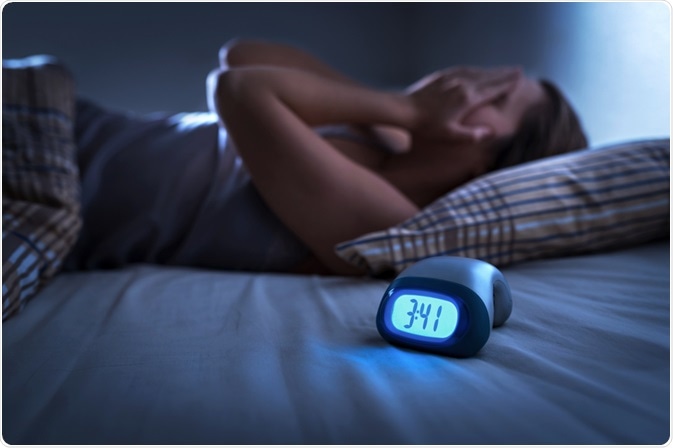What is pain?
Pain is an indicator or alarm that signals that something has happened in the body. The International Association for the Study of Pain (IASP) defines pain as an unpleasant, sensory, and emotional experience associated with actual or potential tissue damage or described in terms of such damage. In simple terms, pain is an unpleasant feeling or sensation in the body in response to injury, illness, or any other occurrence.
 Image Credit: Tero Vesalainen / Shutterstock.com
Image Credit: Tero Vesalainen / Shutterstock.com
What are the types of pain?
There are two types of' pain - acute pain and chronic pain. Acute pain is pain that lasts for a short period of time. Acute pain is what one feels when there is a physical injury caused by a fall, broken bone, or menstrual pain. Acute pain usually goes away as the illness gets better, or the injury gets healed.
Chronic pain persists even after illness or injury is healed, and in some cases, it is worse than before. For example, a person might have persistent lower back pain due to an illness, and it could then persist beyond the illness.
How does pain affect sleep?
Sleep is a temporary natural state of rest characterized by unconsciousness, relaxed muscles, no physical activity, closed eyes, and an inactive nervous system. There could be intermittent waking up during sleep, which is normal. However, when sleep is induced due to pain, it becomes a concern and usually lasts longer than the normal wake-sleep cycle.
People with chronic pain often experience less deep sleep. They also wake up more often during the night and hence experience less efficient sleep. It is found that people who experience pain are eighteen times more likely to experience clinically diagnosed insomnia. Pain affects sleep quality as well as quantity. Pain makes the nervous system more active and hence, keeps a person awake.
In patients with chronic pain such as rheumatoid pain, it was found that there was an association between negative mood and pain. Pain was found to be the link between sleep impairment or disturbance and depression - the mood of an individual is involved in the pathway that leads to disruption of sleep or complete sleeplessness. A study conducted in people with sickle cell disease found that when people experience pain, it dampens their mood, which in turn reduces sleep quality.
Dopamine is a neurotransmitter in the brain. When there are alterations or disturbances in the signaling of dopamine induced by pain, it could lead to elongated periods of sleep loss and disruption of its continuity. This phenomenon could explain why an individual in pain is more likely to wake up between sleep and be conscious of the pain.
Pain affects sleep; however, sleep also affects pain. Lack of proper sleep has the potential to increase pain and sensitivity to the pain. Improving sleep will also help to reduce pain and vice versa. This concept is like a cycle of pain affecting sleep and sleep affecting pain.
Managing good sleep during pain
The fact that pain affects sleep negatively is well known; however, there are ways in which this can be managed and curtailed. Some drugs can manage pain and induce sleep, but they should be administered only with the doctor's supervision. Pain can also be controlled by eating right, practicing good sleeping hygiene and habits.
Opioid peptides play a significant role in sleep disturbance. The use of opioid drugs is found to reduce and relieve pain; however, they can also have a sedative effect and hamper the individual's sleep pattern. Due to the negative consequences of opioid drugs on sleep, it is critical to check the usage of these drugs in treating pain.
Further research needs to be done to understand the factors and mechanisms and decode the relation between sleep and pain. Studies are also required to decipher the association of depression and other mood disorders with sleep deprivation.
References
- Whibley D., et al. (2019). Sleep and Pain. The Clinical Journal of Pain. 35(6): 544-558
- Finan P. H., et al. (2013). The association of sleep and pain: an update and a path forward. The journal of pain: official journal of the American Pain Society, 14(12):1539–1552.
- National Sleep Foundation. (2020). Pain and Sleep. Available at: https://www.sleepfoundation.org/articles/pain-and-sleep
Further Reading
Last Updated: Jan 13, 2021